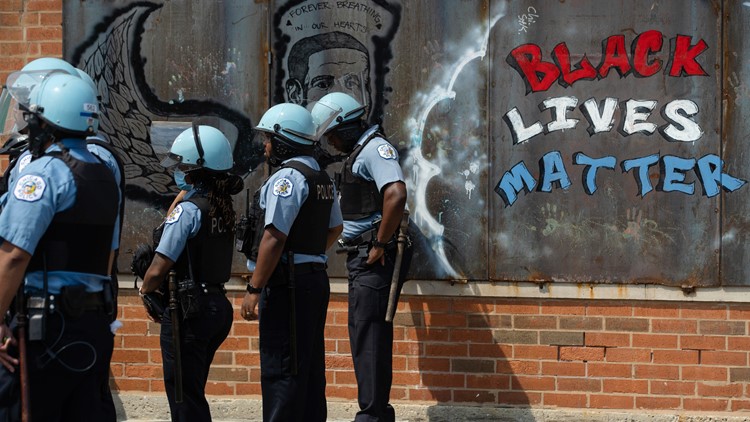Recent news reports have raised questions about the cause of death of George Floyd, the man whose death during his arrest in Minneapolis, sparked Black Lives Matter protests last summer.
THE QUESTION
Did George Floyd really die from drug use and not homicide?
THE ANSWER
No. Autopsy results from the Hennepin County medical examiner in Minnesota and a private autopsy both show that although drugs were in Floyd’s system, they did not cause his death. The medical examiner ruled the death a homicide.
WHY WE ARE VERIFYING
Claims have resurfaced in recent days that blame drug abuse for the May 25, 2020, death of Floyd, who was being held down by police during an arrest.
WHAT WE FOUND
The Hennepin County medical examiner ruled the cause of death as “cardiopulmonary arrest complicating law enforcement subdual, restraint and neck compression.” A Hennepin County Medical Examiner’s press release says the manner of death is homicide.
Floyd’s family had a second autopsy performed by Dr. Michael Baden and Dr. Allecia Wilson. Baden found the cause of Floyd’s death as “traumatic asphyxia due to compression of his neck and back during restraint by police” and called the manner of death homicide. Wilson listed the death as “asphyxia due to neck and back compression led to a lack of blood flow to the brain.”
Notes in a witness contact form from an interview with Dr. Andrew Baker, the Hennepin County medical examiner, show that he found the level of Fentanyl in Floyd’s system was “higher than a chronic pain patient,” but adds, “I’m not saying this killed him.” The notes also mention “a relatively low level of methamphetamine.”
Something you’d like VERIFIED? Click here to submit your story.



